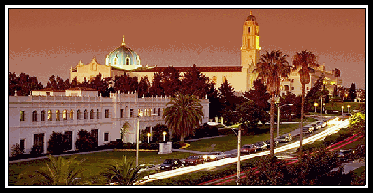
URBAN ECONOMICS
 |
| Spring 2003 |
 |
Economics 104 URBAN ECONOMICS |
|
|
|
| | HOME | SYLLABUS | CALENDAR | ASSIGNMENTS | ABOUT PROF. GIN | |
Study Guide II 1. What factors affect the
demand for labor? 3. What policies can urban
areas use to influence growth? 4. What is the relationship
between urban growth and environmental quality? 5. How is the market value of
land determined when it has a limited useful life? 6.
How does the productivity of land affect its rent when it has
an unlimited useful life? 7. How does the productivity
of land affect its rent? 8.
What is the relationship between the housing market and the
land market? 9.
How is the manufacturing bid-rent function determined with
fixed factor proportions? 10.
How
is the manufacturing bid-rent function determined with input
substitution? 11. How is the commercial or office
bid-rent function determined? 12. How is the housing price function
determined? 13.
How is the residential bid-rent function determined with no
consumer substitution? 14.
How
is the commercial (office) bid-rent function determined? 15.
How
is the housing price function determined when there is no consumer
substitution? 16.
How
is the housing price function determined when there is consumer
substitution? 17.
What is the tradeoff between commuting and housing costs? 18. How is the residential bid-rent
function determined? 19. How is land use in a monocentric city
determined? 20.
How
does including the time cost of commuting, noncommuting travel, and
two-earner households affect land use? 21.
How
do variations in public goods and taxes and pollution and amenities
affect land use? 22.
How does the trade-off between housing and commuting costs
affect the location of different income groups? 23.
What
is the relationship between the urban land and labor markets? 24.
How did the increase in real income, decrease in commuting
costs, and jobs moving to the suburbs affect the suburbanization of
population? 25. How did central city problems
affect the suburbanization of population? 26.
How did the intracity truck, intercity truck, beltways,
automobiles, single-story plants, and suburban airports affect the
suburbanization of manufacturing? 27.
How did improvements in communication technology affect the
suburbanization of office employment? 28. How did the automobile contribute
to the suburbanization of retailing? 29.
What
are different types of shopping centers, and what types of stores are
found in them? 30. What happens in the different
stages of suburban development? |